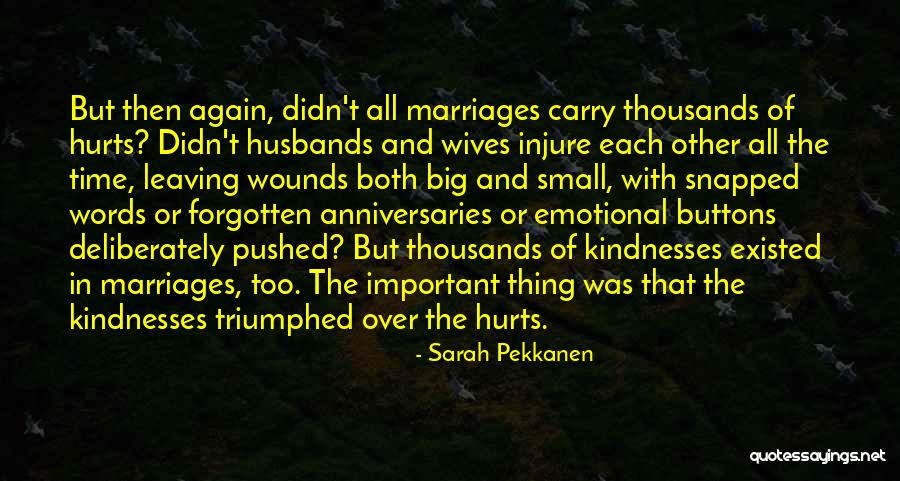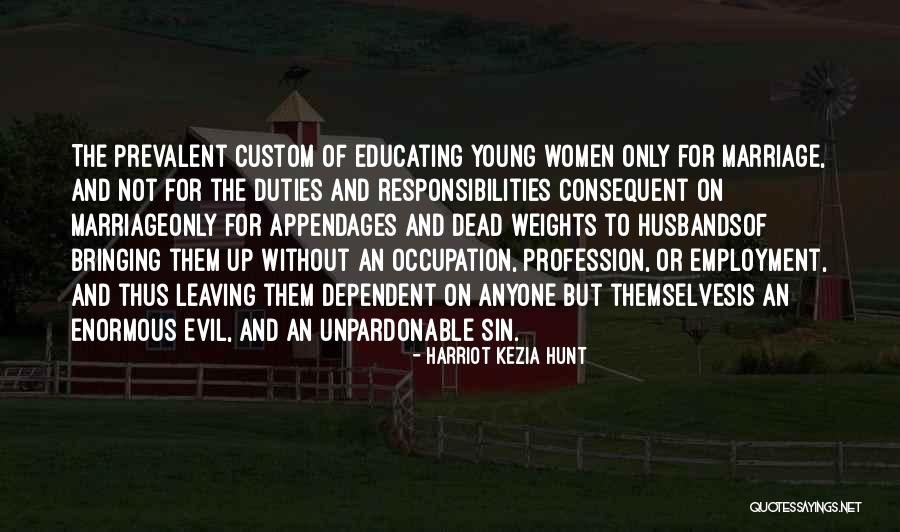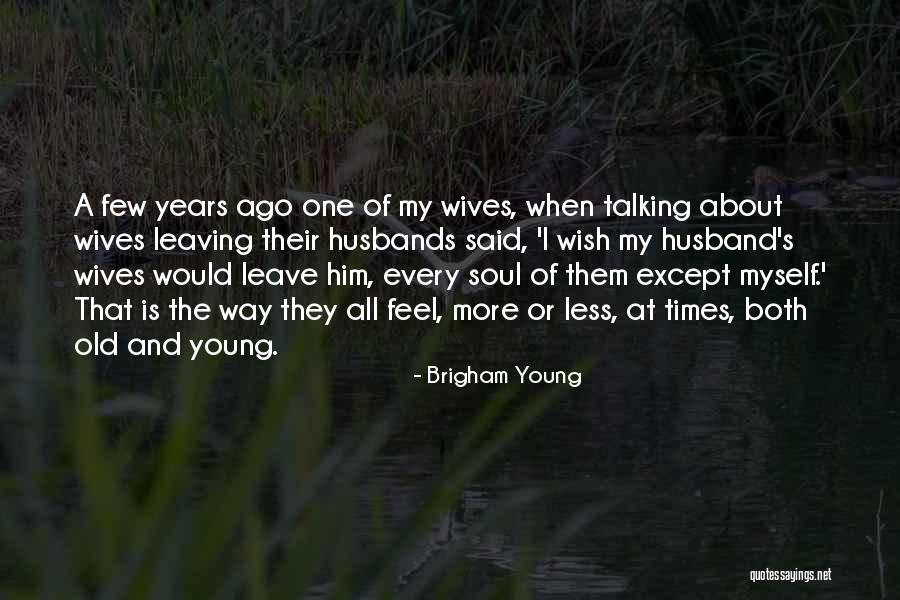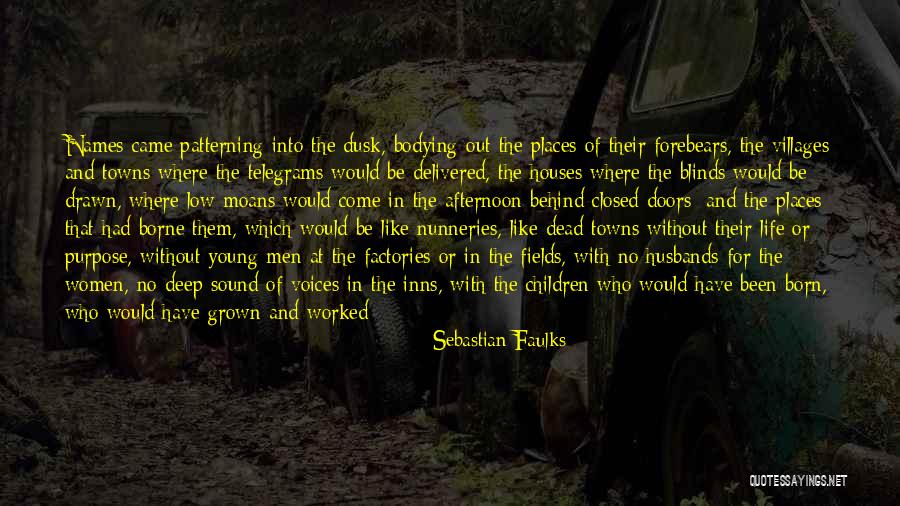Quotes & Sayings About Husbands Leaving
Enjoy reading and share 5 famous quotes about Husbands Leaving with everyone.
Top Husbands Leaving Quotes

This woman enabled her husband to cheat, and she wasn't doing either one of them any favors. Instead of leaving him, she would take him home, scold him, and then carry on with business as usual. Inside though, she would be hurting.
No woman could love a cheater and not pay the price for it. — Rose Wynters

But then again, didn't all marriages carry thousands of hurts? Didn't husbands and wives injure each other all the time, leaving wounds both big and small, with snapped words or forgotten anniversaries or emotional buttons deliberately pushed? But thousands of kindnesses existed in marriages, too. The important thing was that the kindnesses triumphed over the hurts. — Sarah Pekkanen

The prevalent custom of educating young women only for marriage, and not for the duties and responsibilities consequent on marriage
only for appendages and dead weights to husbands
of bringing them up without an occupation, profession, or employment, and thus leaving them dependent on anyone but themselves
is an enormous evil, and an unpardonable sin. — Harriot Kezia Hunt

A few years ago one of my wives, when talking about wives leaving their husbands said, 'I wish my husband's wives would leave him, every soul of them except myself.' That is the way they all feel, more or less, at times, both old and young. — Brigham Young

Names came patterning into the dusk, bodying out the places of their forebears, the villages and towns where the telegrams would be delivered, the houses where the blinds would be drawn, where low moans would come in the afternoon behind closed doors; and the places that had borne them, which would be like nunneries, like dead towns without their life or purpose, without young men at the factories or in the fields, with no husbands for the women, no deep sound of voices in the inns, with the children who would have been born, who would have grown and worked or painted, even governed, left ungenerated in their fathers shattered flesh that lay in stinking shellholes in the beet crop soil, leaving their homes to put up only granite slabs in place of living flesh, on whose inhuman surface the moss and lichen would cast their crawling green indifference. — Sebastian Faulks





